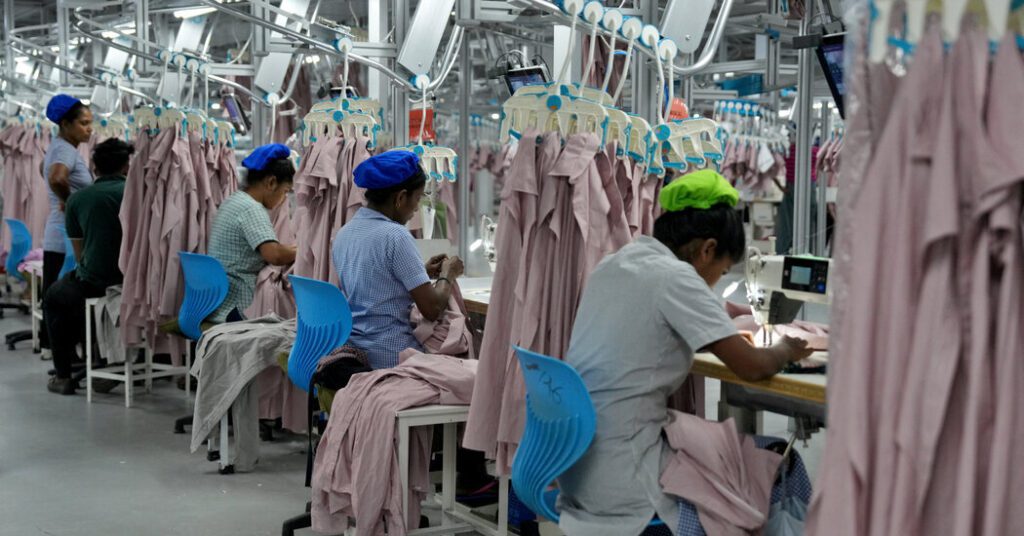Through Covid, political chaos, and economic disarray, Sri Lanka and Bangladesh kept one industry central to their hopes of prosperity afloat: the manufacturing of ready-made garments, with the United States as their main market.
Then came President Trump’s tariffs.
The two countries are reeling after Sri Lanka was hit with 44 percent tariffs and Bangladesh subjected to 37 percent levies. Officials in both countries scrambled to contain panic among business leaders, who worried that they may no longer be able to compete with bigger manufacturing powers, and that their orders could shift to places with lower tariffs and greater industrial muscle.
“We will have to write our obituary notice,” said Tuli Cooray, a consultant at the Joint Apparel Association Forum of Sri Lanka, an industry association. “Forty-four percent is no joke.”
The Trump administration’s tariffs have hit countries at the heart of the global apparel industry especially hard. An analysis by William Blair, an equity research firm, showed that the countries that produce 85 percent of U.S. apparel imports faced an average tariff of 32 percent.
Targeting the manufacturers not only upends the economies of these nations, but also adds to the burden of U.S. companies, analysts warned. William Blair said merchandise costs could go up by about 30 percent and American consumers may ultimately feel the pinch.
Bangladesh sends more than $7bn of clothing to the U.S. every year. The country’s garment manufacturing industry makes up 80 percent of its total exports and employs more than four million people, mostly women. Bangladesh has one of the highest female work force participation rates in the region, which has helped lift a large section of the population out of poverty.
The garment industry is crucial, as the country tries to stabilize its economy after widespread protests and violence last year toppled its autocratic leader.
“Just as the world economy was starting to recover and we were seeing our sales in the U.S. increase, this kind of decision — a trade war, or a tariff war — has now posed a new challenge and uncertainty,” said Mohiuddin Rubel, a former director of the Bangladesh Garment Manufacturers and Exporters Association.
“There are many garment factories in Bangladesh that work solely for the U.S. market — some with 80 percent, some even 100 percent. These factories have made large investments just for US orders,” he added. “This decision will put such businesses in danger.”
In Sri Lanka, the garment industry employs more than 350,000 people, producing apparel for companies such as Nike and Victoria’s Secret. Garments make up about half of the country’s total exports, and the vast majority go to the U.S.
After the country’s economy crashed in 2022, it has been slowly stabilizing with the help of aid from neighbors like India and a bailout from the International Monetary Fund.
“We are trying to see if there is space for reduction before implementation on April 9 through discussions, especially considering the difficult situation we are in,” said Anil Jayantha Fernando, Sri Lanka’s deputy minister for economic development.

